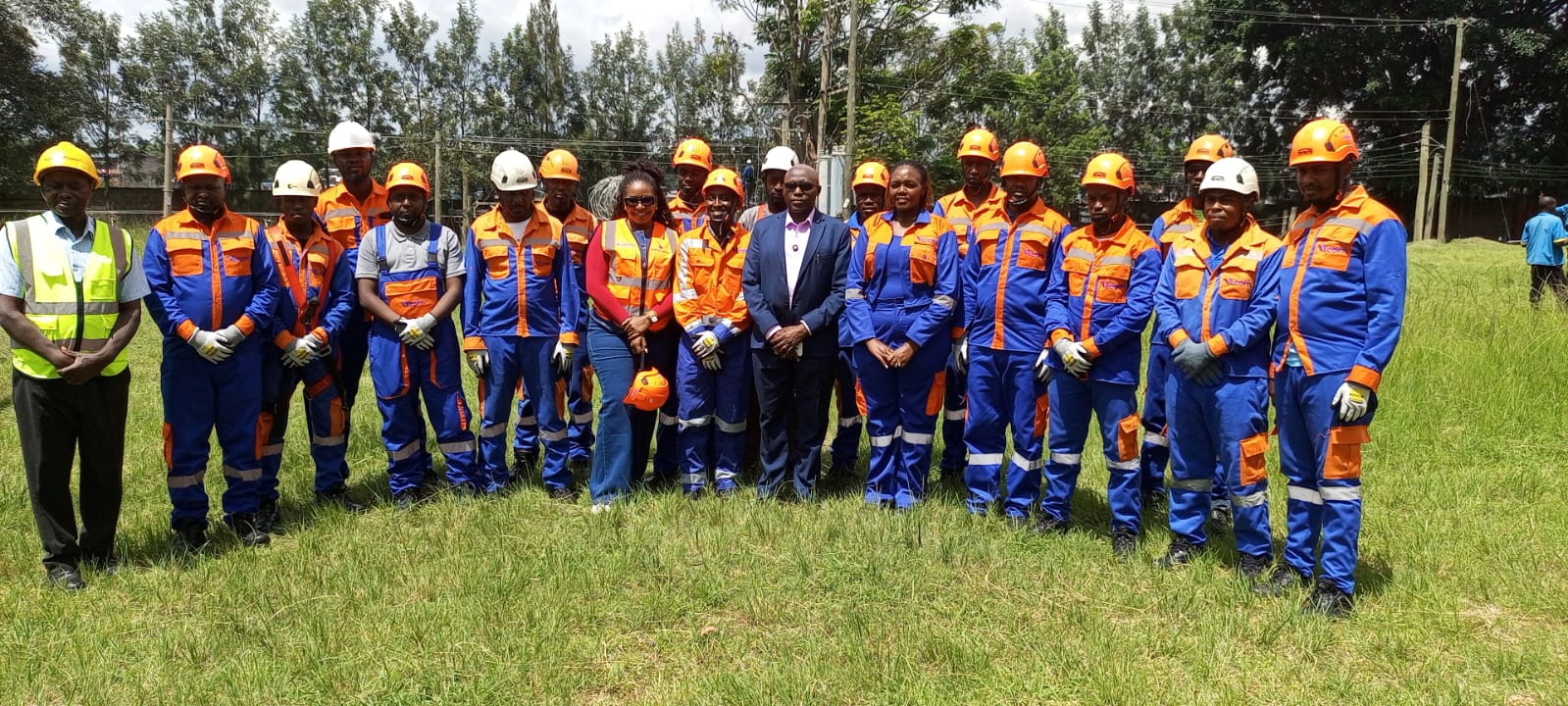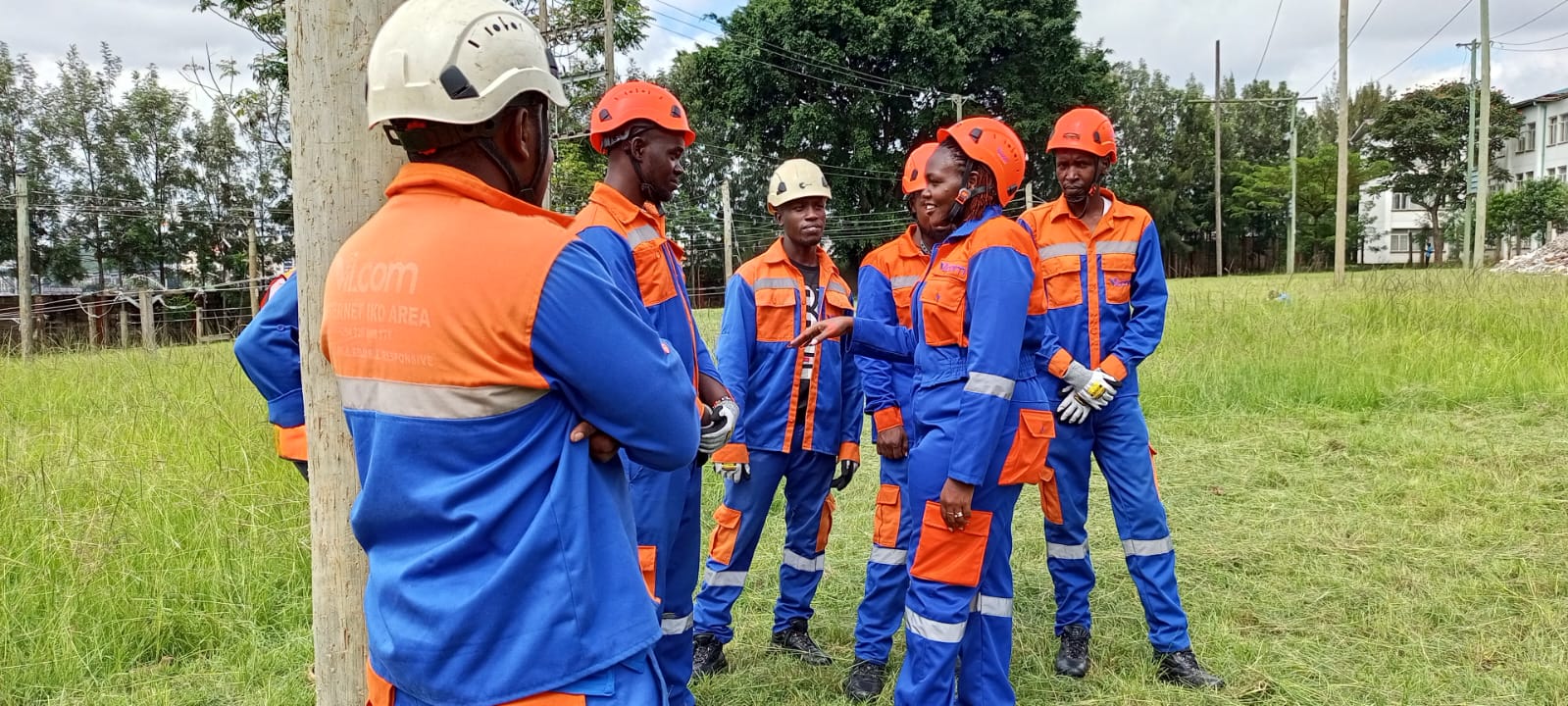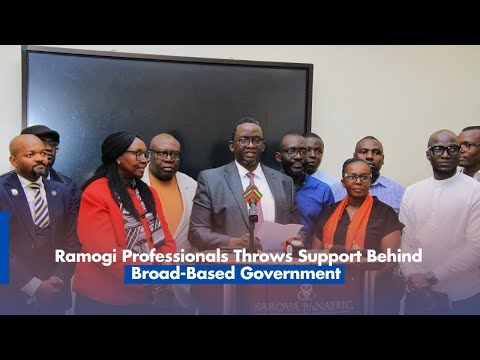
 Institute of Energy Studies and Research Director Jeremiah Kiplagat with a group of engineers during a training session on May 17, 2025/COURTESY
Institute of Energy Studies and Research Director Jeremiah Kiplagat with a group of engineers during a training session on May 17, 2025/COURTESYTelecommunication companies have been urged to ensure their engineers are properly trained and compliant with safety regulations when stringing fibre cables on Kenya Power lines.
The Institute of Energy Studies and Research (IESR), formerly Kenya Power Training School, emphasised the need for certified training to avert accidents as a result.
Speaking during a training session for engineers from Vilcom Networks, the fourth-largest Internet Service Provider (ISP) in the country, IESR Director Jeremiah Kiplagat said they are committed to ensuring that the required standards are adhered to.
The session took place at IESR’s Ruaraka campus in Nairobi.
“As an arm of Kenya Power and Lighting Company (KPLC), we want to ensure all technicians working on our power lines follow strict safety standards and procedures to prevent accidents within the power distribution network,” said Kiplagat.
He noted that the institute is set to roll out a safety initiative dubbed 'Jua For Sure', aimed at verifying technicians' compliance on-site.
The program will ensure that only trained personnel are allowed to work on or near power infrastructure.
Kiplagat further urged ISPs to declare which poles they are using in their operations to promote transparency and prevent revenue losses for KPLC.
“Telecom companies are charged a minimal fee for pole usage, and it’s important they disclose this to maintain fair business practices,” he added.
He warned rogue ISPs that fail to comply with safety and operational standards, stating they risk heavy penalties and possible bans.
“Recently, we’ve seen an increase in illegal operators working on power lines. We’re committed to collaborating with licensed ISPs to eliminate these unlawful activities,” he said.

Among the proposed solutions is the use of dark fibre to reduce cable congestion, especially in urban areas.
“The power network can only accommodate a maximum of four cables, and we’re encouraging ISPs to utilise dark fibre to ease the strain,” said Kiplagat.
Vilcom Networks CEO Agnes Limo affirmed their partnership with KPLC and highlighted the importance of continuous safety training for their technicians.
“Our staff must understand safe distances from power lines and strictly follow KPLC’s guidelines to protect themselves and the public,” said Limo.
She added that the training has significantly improved their safety record, with no incidents reported so far.
Vilcom’s affordable internet product, VUTA Wi-Fi, has gained popularity, especially in remote areas such as Lodwar.
Paul Mbuthia, a trainer at IESR, stressed the importance of equipping technicians with pole-climbing skills and safety awareness when working around high-voltage lines, which range between 240 and 6,600 kilowatts.
“They need to understand their working environment, the equipment they use, and how to handle themselves safely. We train them in both theory and practice to ensure they’re job-ready,” Mbuthia said.
Washington Gathenya, Vilcom’s Head of Safety, and Sydney Lesang from the company’s projects and support department, echoed the significance of the training.
They noted that regular refresher courses help reinforce safety protocols and reduce workplace risks.
The initiative is part of broader efforts to ensure that, as Kenya's internet connectivity expands, it does so without compromising public and worker safety.














![[PHOTOS] Ole Ntutu’s son weds in stylish red-themed wedding](/_next/image?url=https%3A%2F%2Fcdn.radioafrica.digital%2Fimage%2F2025%2F11%2Ff0a5154e-67fd-4594-9d5d-6196bf96ed79.jpeg&w=3840&q=100)


